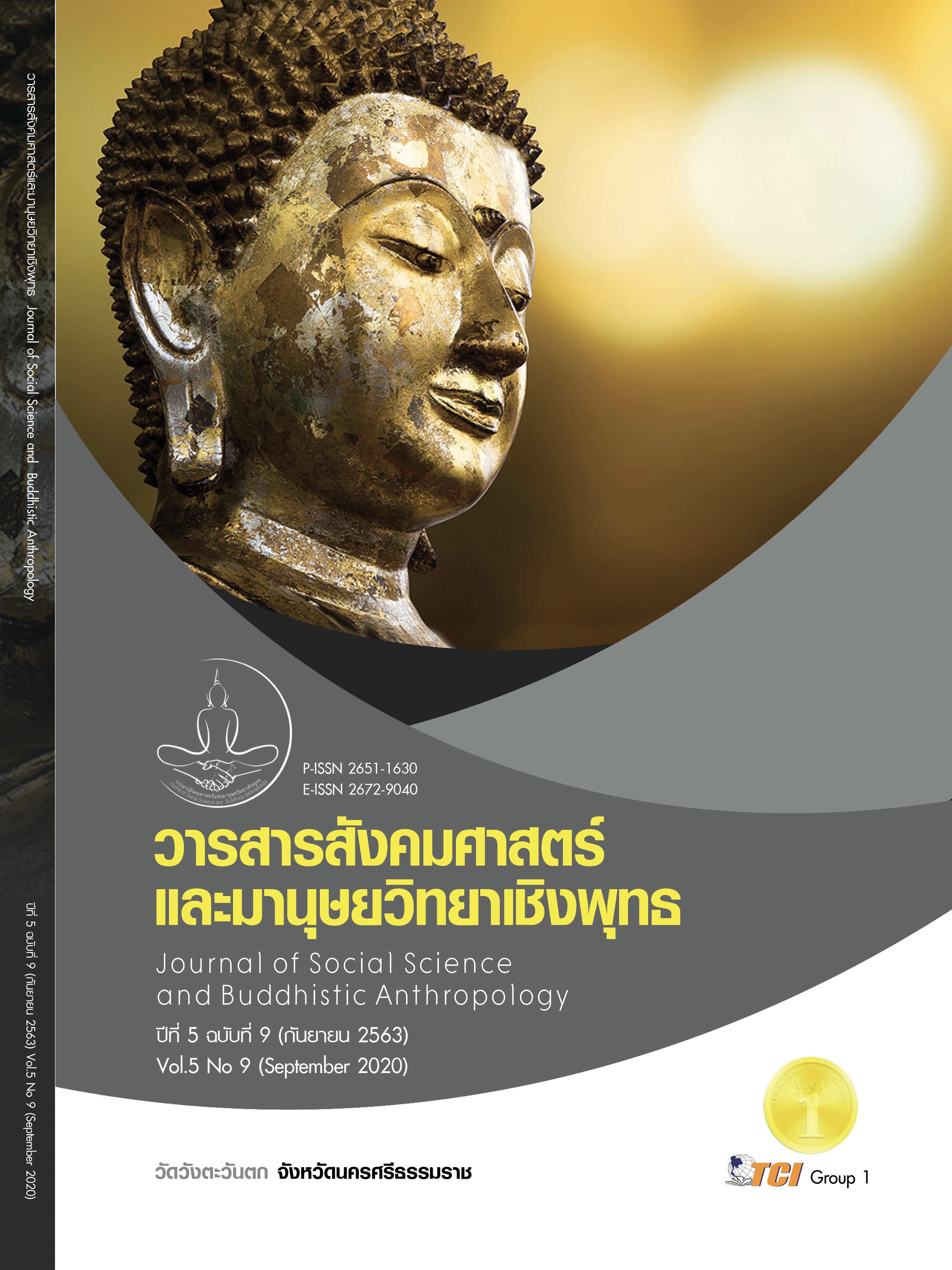ANTECEDENTS AND CONSEQUENCES OF PROPERTY MANAGEMENT IN THAILAND
Keywords:
Antecedents and Consequences, Business Management, PropertyAbstract
This article of this study were: 1) study factors of Antecedents and Consequences of Property Management in Thailand. 2) to examine factors on Antecedents and Consequences of Property Management in Thailand. And 3) to development up models of Antecedents and Consequences of Property Management in Thailand. The research was a mixed methods such as qualitative research by using the simple random sampling questionnaire. The group of sample includes company that operates real estate business for total 280 companies. Using techniques LISREL statistical analysis is frequency, percentage, standard deviation, skewness, kurtosis. By using qualitative research the interview form is structured using specific sampling by main informant such as academic experts and marketing experts: 1) entrepreneurs, 2) academic professionals, and 3) outstanding personnel of the business for total 5 persons. By using content analysis and overview to get the information. The research found that: 1) factors of Antecedents and Consequences of Property Management such as Innovative Work Behavior, Market Orientation, Information Technology, Property Management and Business Performance. 2) factors on Antecedents and Consequences of Property Management most sequences is Information Technology to influence Property Management which is equal to 0.42 direct influence equal to 0.42 without indirect influence. second is Market Orientation to influence Business Performance which is equal to 0.40 direct influence equal to 0.37 indirect influence 0.03. And 3) development up models of Antecedents and Consequences of Property Management the model is consistent with the empirical data statistical significance 0.01 such as: Chi - Square = 62.61, df =78 and p = 0.89796.
References
กรมพัฒนาธุรกิจการค้า. (2563). รายชื่อบริษัทอสังหาริมทรัพย์. เรียกใช้เมื่อ 4 พฤษภาคม 2563 จาก http://datawarehouse.dbd.go.th
ไทยรัฐ. (2563). อสังหาริมทรัพย์ ปี 56 ทะลุจุดเดือด. เรียกใช้เมื่อ 4 พฤษภาคม 2563 จาก http://www.thairath.co.th
บุญชม ศรีสะอาด. (2556). วิธีการทางสถิติสำหรับการวิจัย เล่ม 1 พิมพ์ครั้งที่ 5. กรุงเทพมหานคร: สุวีริยาการพิมพ์.
ผู้เชี่ยวชาญท่านที่ 4. (17 พฤษภาคม 2562). ปัจจัยเชิงเหตุและผลของการจัดการธุรกิจอสังหาริมทรัพย์ในประเทศไทย. (ณัฐ เหลืองคำชาติ, ผู้สัมภาษณ์)
ศูนย์วิจัยกสิกรไทย. (2563). ที่อยู่อาศัยเปิดขายใหม่ในกรุงเทพมหานครและปริมณฑลทั้งปี 2559 59 หดตัวต่อเนื่องเป็นปีที่ 3 โค้งสุดท้ายของปี ผู้ประกอบการปรับกลยุทธ์เปิดขายโครงการแนวราบ. เรียกใช้เมื่อ 1 พฤษภาคม 2563 จาก https://www.kasikorn research.com
Ares Commercial Real Estate Corporation. (2016). Ares Commercial Real Estate Corporation to Present at the JMP 2016 Financial Services and Real Estate Conference. Investment Weekly News. Retrieved พฤษภาคม 6, 2563, from https://www.businesswire.com
Bradly N.J. (2020). An evaluation of coastal management by the Department of Conservation under the Resource Management Act 1991 in New Zealand. Retrieved May 4, 2020, from http://search.proquest.com
Cronbach L..J. (1990). Essentials of psychological testing. New York: Harper.
Desjardins J. (2016). Three Megatrends Dominating Global Real Estate Investment. Retrieved May 4, 2016, from http://www.visualcapitalist.com
Guo & Wang. (2015). How manufacturer market orientation influences B2B customer satisfaction and retention empirical investigation of the three market orientation components. The Journal of Business & Industrial Marketing, 30(2), 182 - 195.
Kokles M. et al. (2015). Information Systems in the Post-Transition Period in Enterprises in Slovakia. Journal of Global Information Technology Management, 18(2), 110 - 126.
Lin M.J. et al. (2015). the effects of external inter - organizational integration on proactive market orientation responsive market orientation and new product development performance. shangguan keji jikan, 16(1), 19 - 45.
Living T. F. (2563). ทิศทางอสังหาริมทรัพย์. เรียกใช้เมื่อ 4 พฤษภาคม 2563 จาก http://thinkofliving.com
Shanker R., & Bhanugopan R. (2014). Relationship between Organizational Climate for Innovation and Innovative Work Behavior. Singapore: Government - linked Companies.
Taro Yamane. (1973). Statistics: An Introductory Analysis. Newyork: Harper.
Truebestein M. (2016). Real Estate Asset and Investment Management for Institutional Investors in Switzerland. Real Estate Finance, 32(3), 108-128.
Watley B.E. (2016). Effects of Innovation Training on Innovative Work Behaviors. Retrieved May 4, 2020, from http://search.proquest.com
Yang C.C. et al. (2005). A study of implementing balanced scorecard (BSC) in non-profit organizations : A case study of private hospital. Newyork: Human Systems Management.









